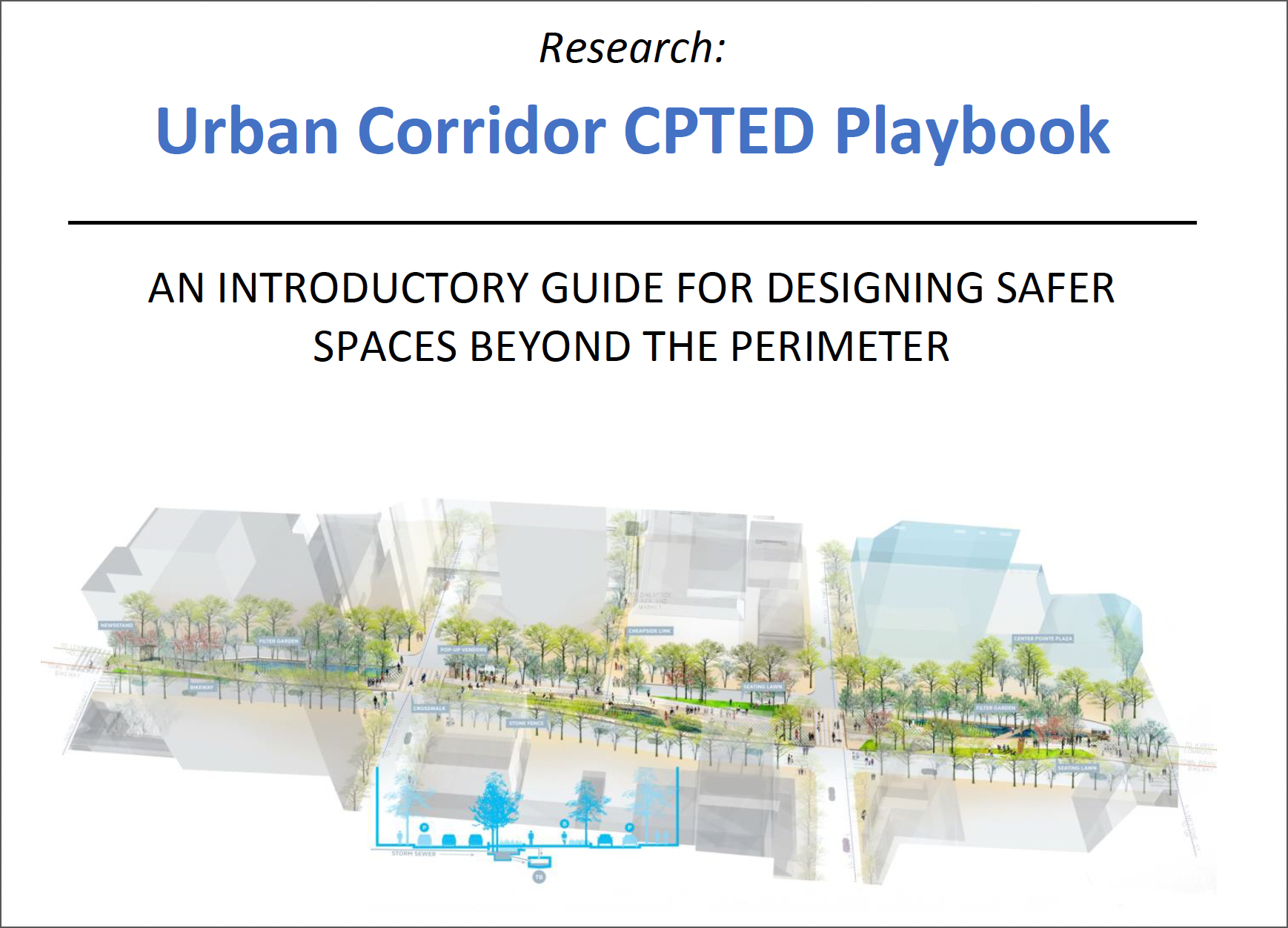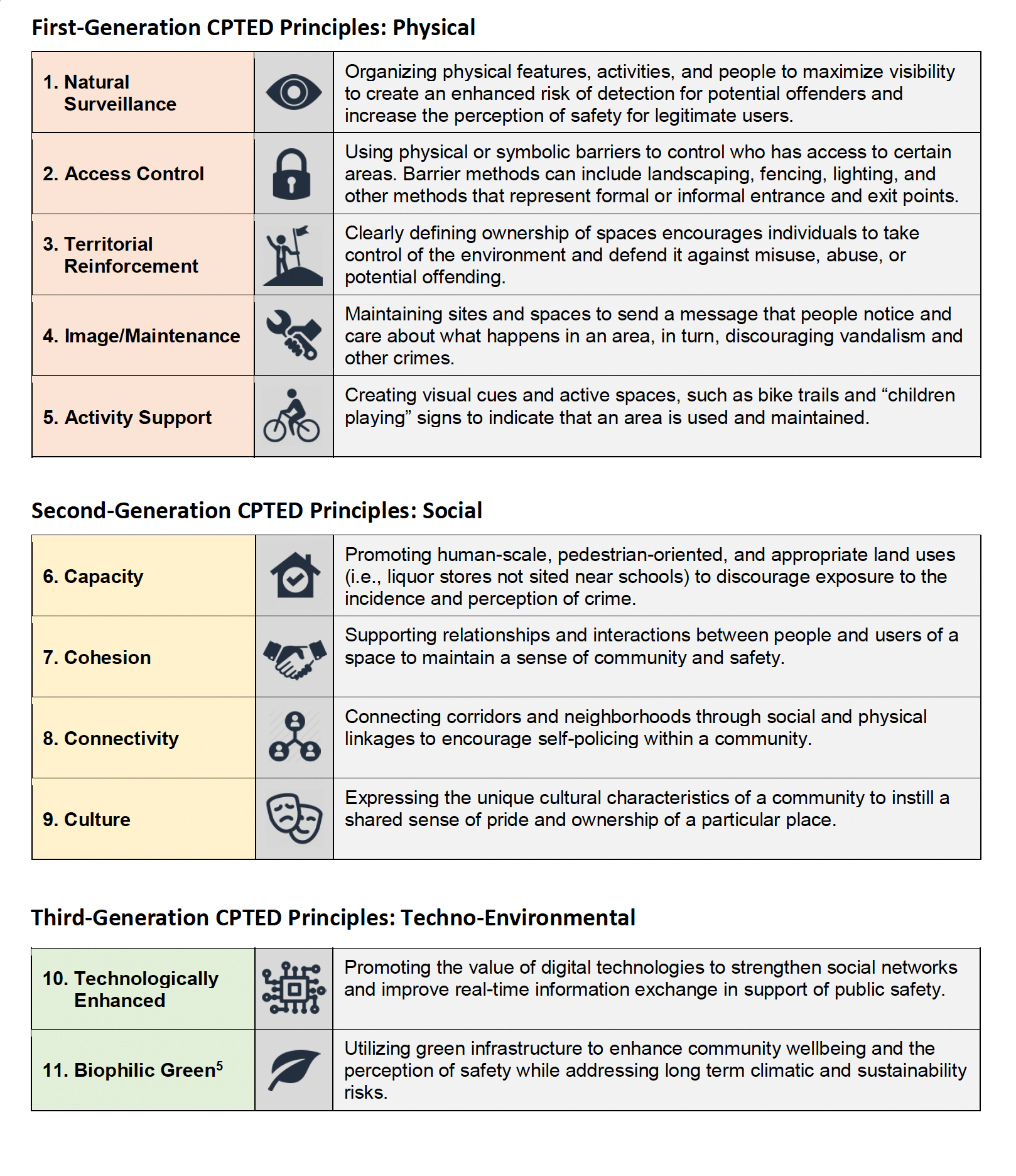URBAN CORRIDOR CPTED PLAYBOOK | GLOBAL TECHNOLOGY COMPANY
CLIENT | Global Technology Company
SITE | U.S. & International Corporate Campuses
____________________

THE CHALLENGE
A global technology company sought to enhance community safety around its corporate facilities while advancing broader engagement and sustainability goals. Locating facilities in dense urban cores provides proximity to talent and culture but also exposes staff and visitors to heightened risks: crime, terrorism, active shootings, and civil unrest. While post-9/11 Anti-Terrorism Design (ATD) measures have improved physical protection, they often rely on target hardening (surveillance, barriers, restricted access) that can erode community vitality.
The question: How can corporate campuses and surrounding urban corridors be designed to reduce risk while supporting vibrant, welcoming, and resilient public spaces?
OUR ROLE
Over a four-year advisory engagement, Regensia served as contract advisor and project manager to a Fortune 100 tech company, leading the development of a CPTED Playbook that applied three generations of CPTED principles—physical, social, and techno-environmental—to corporate campuses and adjacent neighborhoods.
Key contributions of the Playbook included:
- Designing place-based planning strategies addressing streetscapes, sidewalks, landscaping, and maintenance.
- Developing a Prioritization Matrix to evaluate strategies against criteria such as safety impact, cost, ease of implementation, and CPTED principle alignment.
- Anchoring recommendations in 11 CPTED principles, translated into actionable guidance for facility planners, designers, and community partners.

Anchoring the Playbook were 11 CPTED Principles
KEY FINDINGS
- Process over product: CPTED is most effective when treated as a collaborative process rather than a fixed set of design outcomes.
- Scale matters: Urban corridors require broader input and multi-block strategies to address complex crime patterns beyond single-site interventions.
- Employee wellbeing: Safer, more attractive public spaces reduce fear and crime while boosting employee comfort, retention, and productivity.
- Community partnerships: CPTED provides a strong platform for collaboration with local residents, law enforcement, and municipalities, strengthening neighborhood identity and cohesion.
- Reputation & brand value: Demonstrating genuine investment in community safety and quality of life enhances corporate goodwill and strengthens brand identity in contested urban environments.
RESULTS & IMPACT
The Playbook expanded the company’s understanding of CPTED and established a framework for applying principles across global campuses. It directly informed the landscape design of a public space adjacent to the corporate headquarters, setting a precedent for future urban corridor and community safety initiatives.

